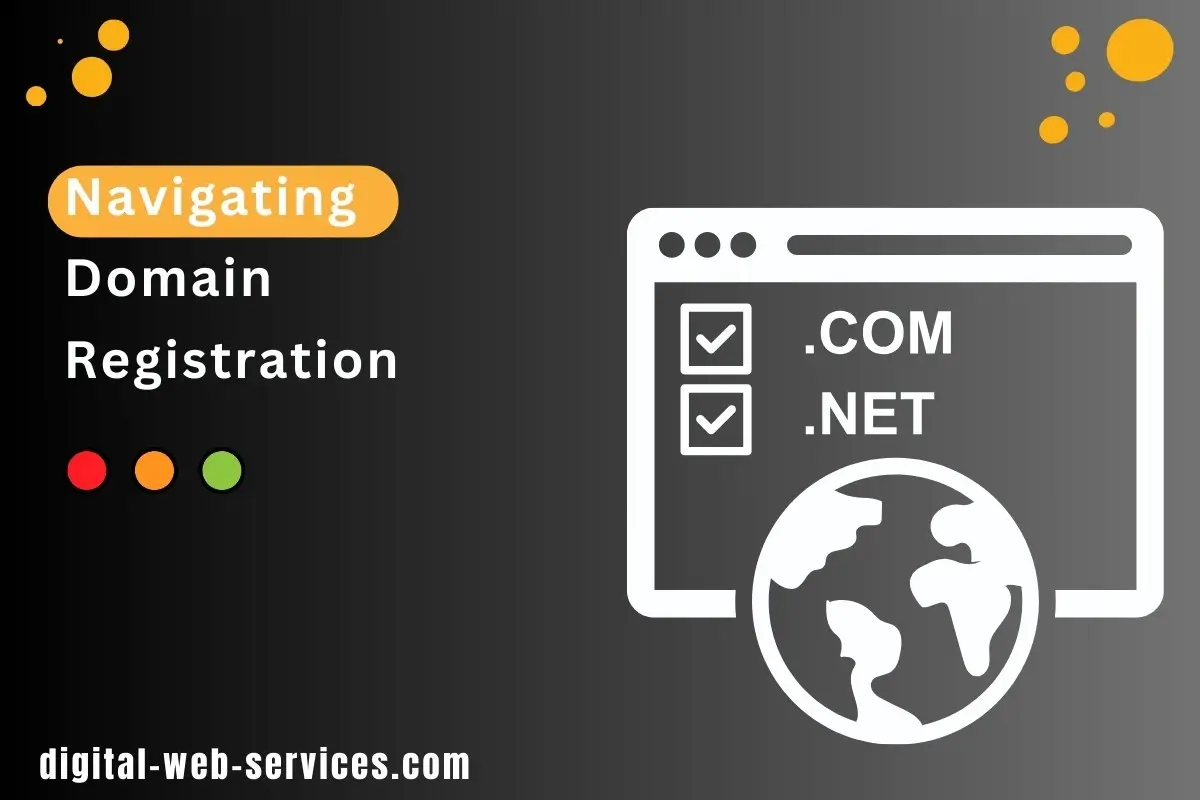
The process of domain registration is a vital part of creating an online presence for your business. The domain name and registrar you select can greatly influence how visible, trustworthy, and easy-to-reach your website will be. To some, the cost might be a deciding factor; to others, the ease of registration makes or breaks the deal. On average, registering your domain can cost anywhere from $10 to $45 a year, so you must make an educated choice.
Because there are many choices available, it’s important to know about best practices and suggestions for successful domain registration. Keep reading to learn how to navigate the process of domain registration with ease and success, so that your domain name not only matches your brand but also improves how far your online reach goes.
Understanding Domain Name Registrars
Companies that have accreditation for selling domain name registrations are known as domain name registrars. They provide the platform and assistance necessary to acquire and manage your domain. To find a cost-effective solution from among the many domain name registrars, you need to compare services, prices, and features meticulously.
Different registrars usually have different offerings. Some may include hosting, SSL certifications, and email in their package. Luckily, there are also registrars that offer affordable domain names and straightforward registration to meet everyone’s budgets and needs.
Choosing the Right Domain Name
Choosing the right domain name is an essential part of setting up a powerful online presence. Your domain name should be easy to remember, related to your brand, and simple in spelling. It must also show what kind of business or content you have.
Perform comprehensive research to confirm that the domain name is not already taken or trademarked. Never use numbers or hyphens because they make it more difficult for people to recall and type in your website address. Keep the name of your domain short, simple, and easy to remember for users who want to type it in their browser. Moreover, consider adding keywords linked to your business to enhance search engine optimization (SEO) and draw in organic traffic.
Ensuring Domain Privacy and Security
It’s vital to protect your domain from unauthorized access and other cyber risks. Most registrars provide domain privacy services, which keep your details hidden in the WHOIS database that people can see publicly. This service helps to stop spam, stealing identities, and other harmful actions.
By setting up two-factor authentication (2FA) for your domain account, you make it more secure. What this means is that after entering the correct password, you still need to provide another type of verification. Keeping your contact details updated and renewing the domain on schedule are key actions to retain control of your domain. Paying for security features from known registrars guarantees that the domain stays safe and reachable.
Understanding the Domain Registration Process
The process of domain registration includes a few steps. First, you need to see if the domain name that you want is available for use. Once selected, pick a registrar and create an account with them. Now it’s time to register your chosen domain by providing the necessary details such as contact info and how to pay for it.
Certain registrars also provide extra features such as domain privacy, SSL certificates, and email hosting. You can include these when you are registering. Once the registration is finished, it becomes crucial to set up your domain’s settings like DNS records so that your website is properly linked to the registered name. Understanding these steps and relevant terms can assist you in navigating through registration smoothly.
Renewing and Managing Your Domain
The usual duration for domain registration is from one year up to ten years, this depends on the registrar and your choice. You need to remember when your domain will expire and renew it before that time comes so that you won’t lose ownership of the domain name.
Many registrars offer automatic renewal selections for maintaining continuous possession of a registered web address. To manage your domain, you need to maintain accurate contact details, observe the performance of your domain, and adjust DNS settings when necessary. Checking security settings for your domain regularly helps guard against risks in the digital world. Using management tools from your registrar can make these tasks easier and guarantee that your domain stays active and safe.
Final Words
To handle domain registration well, you need to know about domain name registrars, select an appropriate domain name, protect privacy and security aspects, comprehend the process of registration, and manage your domain efficiently. By following these suggestions and deploying best practices, you can set up a robust online identity that mirrors your brand image while also drawing in visitors. It is important to research thoroughly and make wise decisions at every stage of the registration process. This will benefit you in the future by preventing common mistakes while also helping to make the best use of your domain’s potential.
Digital Web Services (DWS) is a leading IT company specializing in Software Development, Web Application Development, Website Designing, and Digital Marketing. Here are providing all kinds of services and solutions for the digital transformation of any business and website.










